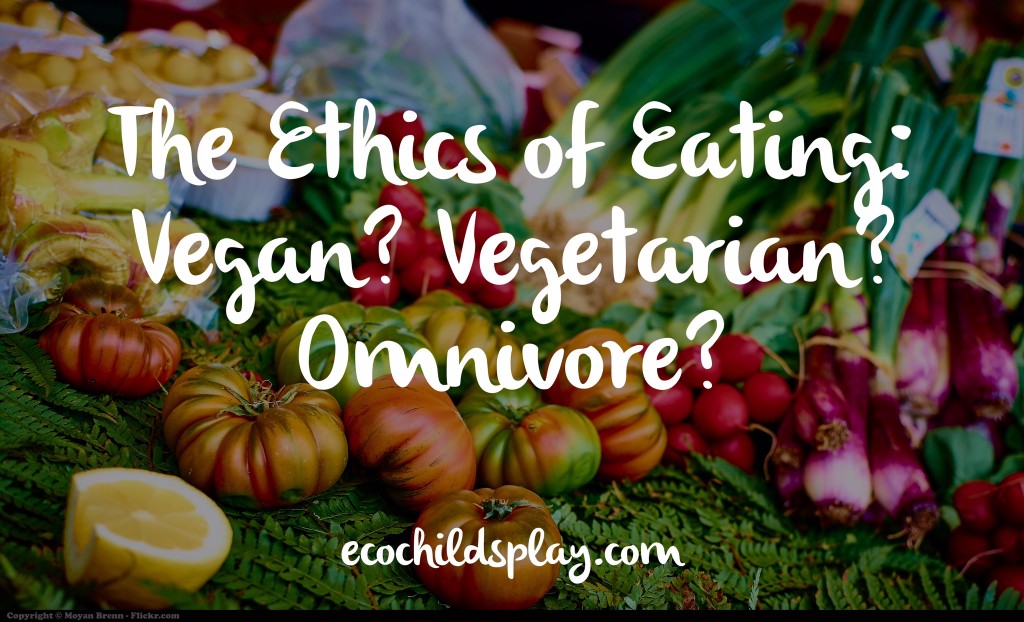
When I was 16-years-old, I decided to become a vegetarian. My reasons varied.
I never liked meat. As a young child, I claimed to get the “steak sickness” every time it was served. I couldn’t digest it.
As a child, I loved animals. My affinity for elephants and horses were the stuff of family legend. My adoration for our pets taught me love and compassion for animals. I didn’t want to eat them.
I was raised Catholic. The Ten Commandments were taught to me at an early age. I took to heart “Thou shalt not kill” to include the food I used for sustenance, not just other human beings.
On our way to my Grandmother’s house, we did not go over the river and through the woods. We passed buildings with chickens packed in so tightly you could see the ones fortunate to be by the openings wishing for open space and fresh air.
In my teen years, I discovered Greenpeace. I became more aware of environmental and conservation issues.
All of these factors led to my choice to be a vegetarian. Granted, I started out as a bad vegetarian, simply eliminating meat from my diet. I had no one to teach me; no role models to follow. No cookbooks to read.
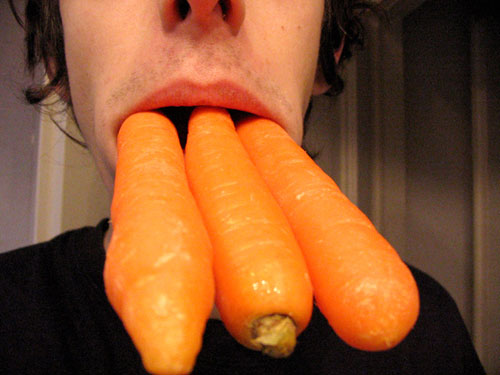 What is the difference between a vegetarian, vegan, and omnivore?
What is the difference between a vegetarian, vegan, and omnivore?
Most humans are omnivores. Omnivores get their energy from a variety of food sources such as plants, animals, fish and fungi.((https://en.wikipedia.org/wiki/Omnivore)). Humans are one of the largest omnivore species on the planet. ((http://www.qrg.northwestern.edu/projects/marssim/simhtml/info/whats-an-omnivore.html)) Michael Pollan’s book The Omnivore’s Dilemma, which examines the American diet, has brought the term more to the forefront.
Vegetarians don’t eat meat. Their food sources are plants, animal by-products, and fungi. Sometimes pescatarians, people that eat fish but not red or white meat, are considered vegetarians, but I consider this a separate group. Vegetarians will eat dairy products. Some eat eggs.
Vegans eat a strictly plant-based diet. Some will not even consume honey, as it is considered a by-product of a living creature.
The Vegetarian Society makes the following distinctions:
The Vegetarian Society defines a vegetarian as: “Someone who lives on a diet of grains, pulses, nuts, seeds, vegetables and fruits with, or without, the use of dairy products and eggs. A vegetarian does not eat any meat, poultry, game, fish, shellfish* or by-products of slaughter.”
*Shellfish are typically ‘a sea animal covered with a shell’. We take shellfish to mean;
- Crustaceans (hard external shell) large – e.g. lobsters, crayfish, crabs, small – e.g. prawns, shrimps
- Molluscs (most are protected by a shell) e.g. mussels, oysters, winkles, limpets, clams, etc. Also includes cephalopods such as cuttlefish, squid, octopus.
There are different types of vegetarian:
- Lacto-ovo-vegetarians eat both dairy products and eggs; this is the most common type of vegetarian diet.
- Lacto-vegetarians eat dairy products but avoid eggs.
- Ovo-vegetarian. Eats eggs but not dairy products.
- Vegans do not eat dairy products, eggs, or any other products which are derived from animals.
Eggs: Many lacto-ovo vegetarians will only eat free-range eggs. This is because of welfare objections to the intensive farming of hens. ((https://www.vegsoc.org/definition))
What is the ethics of our food choices?
When we examine our food, we can look at the ecological and ethical consequences of what we eat. Both are equally significant and interrelated. Both were involved in my personal decision to become a vegetarian.
What have you eaten today? Where did it come from? Who was involved in the growing, processing, and delivering of that food to your table? Is it organic? Is it local? How much water was used in its production? How were the farm workers and/or animals treated? Is it sustainable? Are antibiotics overused in the production? Is it overfished?
The breadth of questions related around the ethics of eating is huge. The more we learn, the more questions arise. For each individual, personal values decide which ethical question is most prevalent in making choices. This often changes over time.
The Water Footprint of Food
Living in drought-stricken California, one of the ecological issues that have been discussed recently is the water footprint of agriculture. Grace Communications Foundation explains:
You might be surprised by how much water it takes to grow and make our food. The food we eat makes up more than 2/3 of our total water footprint, mostly because of all the “virtual water” needed to produce that food. It seems pretty obvious when you really think about it; crops can’t grow without water. In the US, agriculture is responsible for 80 percent of all water consumed (water that is evaporated or otherwise removed from the watershed)…
Let’s take a closer look at meat. Pound for pound, it has a much higher water footprint than vegetables, grains or beans. For instance, a single pound of beef takes, on average, 1,800 gallons of water. That huge water footprint is primarily due to the tremendous amount of water needed to grow the grass, forage and feed that a beef steer eats over its lifetime, plus water for drinking, cleaning and processing.((http://www.gracelinks.org/1361/the-water-footprint-of-food))
The average omnivore American eats 167 pounds of meat.((http://www.gracelinks.org/1361/the-water-footprint-of-food)) 1,800 gallons of water multiplied by 167 pounds results in 300,600 gallons of water. That’s enough water to fill half on an Olympic size swimming pool just to eat meat!((http://www.patagoniaalliance.org/wp-content/uploads/2014/08/How-much-water-does-an-Olympic-sized-swimming-pool-hold.pdf))
Many vegetarian staples, like almonds, are also heavy water users, but this crop is still more water efficient than dairy or beef.((http://www.slate.com/articles/business/moneybox/2015/04/almonds_in_california_they_use_up_a_lot_of_water_but_they_deserve_a_place.html)) Water is just one issue. There are many more.
Modern Animal Husbandry
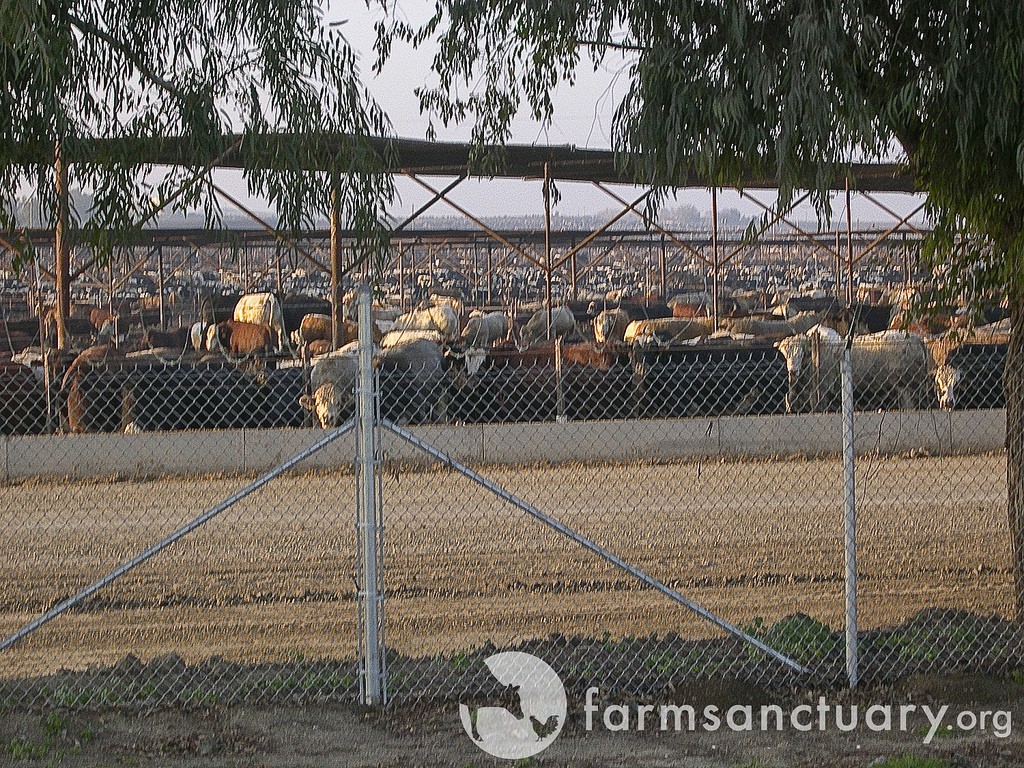
If you have ever driven by Harris Ranch south of Sacramento on Interstate 5 in California, you have seen and smelled modern animal husbandry. Cattle are packed into feedlots tightly. The smell of slaughter permeates the air. It’s enough to make anyone with the slightest bit of compassion give up meat, at least for a meal.
Concentrated Animal Feeding Operations (CAFO) are the norm in modern animal husbandry. The lack of ethics of CAFO is great ranging from antibiotic overuse necessary from overcrowding to the humane treatment of animals. According to CAFO: The Tragedy of Industrial Animal Factories:
The CAFO is the ultimate expression of the industrialization of nature. If all of us knew more about the realities of modern industrial animal food production, however, one would hope that we would apply the collective brakes on this dietary, environmental, and ethical madness.
“The principle of confinement in so-called animal science is derived from the industrial version of efficiency. The designers of animal factories appear to have had in mind the example of concentration camps or prisons, the aim of which is to house and feed the greatest numbers in the smallest space at the least expense of money, labor, and attention. To subject innocent creatures to such treatment has long been recognized as heartless. Animal factories make an economic virtue of heartlessness toward domestic animals, to which we humans owe instead a large debt of respect and gratitude.” —Wendell Berry, Stupidity in Concentration
((http://www.cafothebook.org/theissue.htm))
The egg and dairy industry are not much better creating a surplus of males that are killed while some are used for veal or meat chickens.
Ethical Omnivore or Vegetarian Eating
Just because one is a vegetarian, it does not assume an ethical diet. Barbara Kingsolver in Animal, Vegetable, Miracle: A Year of Food Life raises interesting points about the ethics of eating foods grown in exotic places to maintain a vegetarian diet versus ethical animal husbandry where the animal is treated compassionately in life and death.
We were sent Veganish: The Omnivore’s Guide to Plant-Based Cooking by Mielle Chenier-Cown Rose that inspired this post.
Tens of thousands of people have put down their knives in favor of a vegan or vegetarian diet for weight loss or to control blood pressure and cholesterol. Many people got exactly what they were looking for, along with a few surprises, such as loss of bone density and dental issues. Mielle Chenier-Cowan Rose has experienced much the same in her journey as a vegan chef raising her child vegan. This utterly unique “vegan +” cookbook offers over 100 easy-to-make vegan recipes and many basic methods and cooking techniques, as well as advanced options. A trained chef, Mielle Chenier-Cowan Rose also offers sage advice about food and nutrition, along with her personal story about transitioning from a 20-year long vegetarian diet to eating some animal-based foods. Chenier-Cowan Rose has dedicated herself to making sure vegan and vegetarian folks are aware of vital and important information about the vegan diet, including the nutritional elements that are essential to good health, especially for families and children. Veganish is necessary reading for anybody considering this lifestyle and a must-have for veggie families with children.
The recipes look amazing in this book. I can’t wait to try the Lemon Cashew Cheesecake and the Four-Flavor Mint Chutney. What I appreciate more than the recipes is Mielle’s honest reflections on her own diet shared in the introduction.
Mielle had been a vegetarian for over 20 years; vegan for 12 of those years. When her daughter experienced dental problems related to their restricted diet, she decided to make a change. She is now a “reluctant omnivore”.
In the past 28 years, I have tried out vegan, gluten-free, and raw diets. I have made these choices often on what others have told me were right not listening to my own body’s needs. I realize now that I am not allergic to gluten or intolerant, even though my dad is a Celiac, and raw food is not right for my digestion. I need a diet of primarily cooked food. I am still a vegetarian, although I have added eggs to my diet. Honoring your own health needs is also an ethical choice.
As a reluctant omnivore, Mielle gives advice about how to seek out “the most honorable farms and learning about which industry practices can or can’t be avoided.” She writes:
I relish animal-based foods as much as any gastronome, and was never fundamentally opposed to the natural course of life-taking-life-to-sustain-life, which indeed occurs in a plant-based diet as well. My complaint was, and still is, with the heartless practice of modern animal husbandry. I don’t believe that humans have a right to treat sentient beings the way we treat most farm animals. We cannot possibly thrive by consuming the product of such intense suffering. (p. xiv)
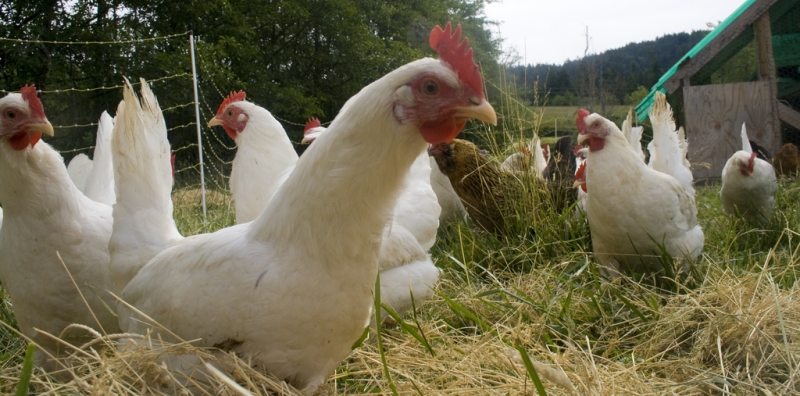 What do those meat and dairy labels mean anyways?
What do those meat and dairy labels mean anyways?
When I shop for organic eggs and dairy, I do look for labels that say such things as “cage-free” or “free-range” assuming they mean the animals were treated more ethically. Like most people I have been duped by such labels, such as Horizon Organic using feedlots.
According to Meille, most cage-free chickens simply live in overcrowded barns, like the ones I would see on my way to my grandmother’s house. Don’t let the label “free-range” make you feel any better. Meille writes:
The label free-range is not much better; the range can be as paltry as a gravel courtyard accessed by a small door that most of the birds can’t even reach through the sea of excrement and other chickens. Both labels allow painful beak cutting and forced molting through starvation. Organic labels require outdoor access, but the duration, quality and amount is up to the farmers. there are no regulations for free-range cattle or pork. These, and organically raised cows, spend much of their lives in severely crowded feedlots, endure painful mutilation, and end their lives a the same high-volume slaughterhouses as conventional cows. These facilities are certainly not the pasture-grazing farms that compassionate consumers are hoping to support. (p. 8)
Meille explores many more topics in Veganish, such as organic labels and gmos.
Unfortunately, we live in a world where labels are used more for marketing than for honesty. Educating oneself is the only defense.
Visit local farms and read books like Veganish to learn more about how to eat ethically, whether you are a vegan, vegetarian, or omnivore.
Photo credit: Moyan_Brenn / Foter.com / CC BY
Photo credit: Nicolas Valentin / Foter.com / CC BY-NC-SA
Photo credit: woodleywonderworks / Foter.com / CC BY
Photo credit: sterile / Foter.com / CC BY-NC-SA
Photo credit: Farm Sanctuary / Foter / CC BY-NC-ND
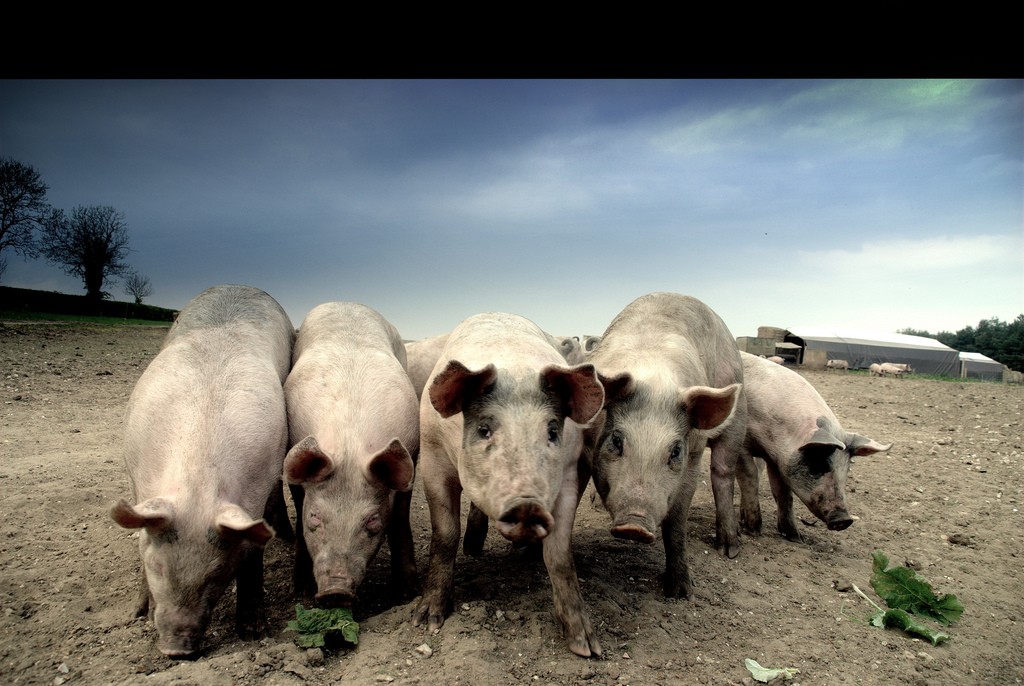
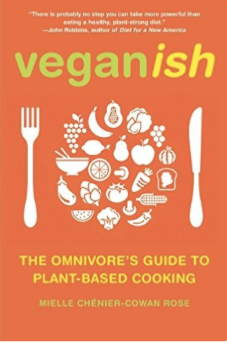
Hello,
This is a great interview with Vegan Activist Michelle Carrera: What It’s Like Raising My Child Vegan
http://bit.ly/MichelleCarreraVegan
would be happy if you can post it